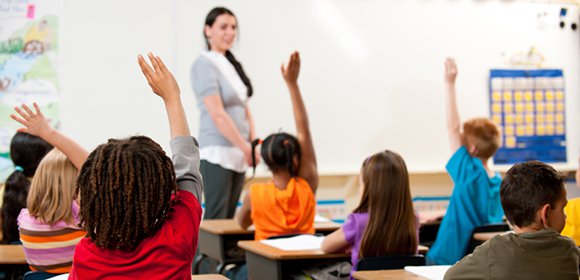Call for specific classes in all schools to cover domestic heating
Parent will likely tell you they hear very similar complaints at home about domestic heating. Commonly; “Who turned the thermostat up again?” and “Who left the door open when the heating is going full pelt?”. The observation “I’m not made of money” is also likely.
 It’s because of these almost universal parental observations that schools need to spend time teaching children about saving energy and domestic heating as part of their curriculum.
It’s because of these almost universal parental observations that schools need to spend time teaching children about saving energy and domestic heating as part of their curriculum.
Yorkshire-based Warm.co.uk say that in an age of rising energy prices and diminishing energy security, it’s time that young people are taught that gas and electricity are not finite resources and that heating has become a hot topic.
“We’ve become used to warm comfortable homes rather than teaching young people that heating is one of many things that shouldn’t be taken for granted,” says Warm.co.uk spokesperson Jonathan Ratcliffe.
Teaching the energy leaders of the future
Schools already teach ecology and green living as part of the curriculums. Unfortunately, these are often along broad themes that don’t cover all pressing topics.
“It’s great, for example, that young people are seen as thought leaders in recycling rubbish, and we need to harness that enthusiasm for other green issues,” says Ratcliffe.
It’s well known that for every degree you turn down your thermostat, you save five per cent on your energy bill. But – like anything- it’s much more complicated than that.
“Energy classes in schools shouldn’t be just about the cost,” says Ratcliffe. “The trouble is that because parents are footing the bill, the money becomes an abstract concept to kids.”
Focus in classes should instead be on domestic heating and energy:
Efficiency
Insulation
The sources of our heating energy
Domestic heating and its contribution to global warming
Investing in greener energy
How young people can take positive steps at home and in the wider world
There are several important lessons for kids to learn. Why not explore the reasons behind energy use and why preserving energy is important?
Unique teaching techniques?
The teaching could come from unusual angles, Ratcliffe says.
“We live in an increasingly sedentary society, and people come home from work or school and just sit down and do nothing,” he explains. “When you’re not moving, you’re going to need the heating up higher as a result.”
“Why not – and this might blow your mind – get up and do something. Go for a walk. Take some exercise. Therefore, you won’t need the heating up full pelt.”
Warm.co.uk’s Jonathan Ratcliffe says that this isn’t a demand to shoe-horn lessons into an already crowded school curriculum.
“This is important in addition to current citizenship teaching so young people can arm themselves for the years ahead, where our energy security becomes more fragile,” he says.
“Yes, they’ll be saving Bank of Mum and Dad a small fortune by turning the heating down, but they’ll also be learning important life lessons for when they themselves become adults.”



